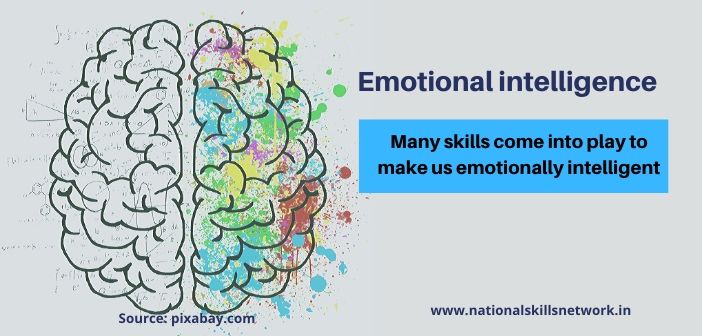Have you ever held yourself back when you were angry and felt like screaming at someone? If your answer is yes, then you’re already familiar with how emotional intelligence works. Responding thoughtfully to situations and keeping our emotions well-balanced requires conscious practice.
Emotions play a great role in our day to day lives. The one who can master the emotions can master actions and will eventually master all future realities. It is one of the most valued skills in a leader. When handling a team, to get others to perform effectively, you need to have a high emotional intelligence.
It is something easier said than done. However, like any other skill, practising it consciously will make you better at it. We have listed down a few skills that will help you improve your emotional intelligence.
Practising self-awareness is the key
Trying to manage your emotions without self-awareness is of no use. Being self-aware helps you identify your emotions. You will be able to know how it affects other people around you. Identify your strengths and weaknesses and behave with humility.
 Work on your social skills
Work on your social skills
Start working on your social skills. Improve your communication skill which will help you do well in the social skills element. Don’t always expect good news. If something goes wrong despite your team’s efforts, take it easy. Don’t start blaming your team for not working hard. Be calm and think of new projects and ideas to make things work. When working on a project, contribute to the work equally. Don’t sit back and let others do your work.
Practice empathy
You need to be empathetic towards other people’s feelings both individually and in groups. Be aware of the emotions of others, and use this to guide your behaviour. Be sensitive towards other people in your team. Try to understand their situations and point views. It will help you become a better leader and your team members will respect you.
Develop the habit to listen
To be able to understand people, you need to listen to them. Listen attentively when someone’s speaking and be a good listener. Observe people’s body language as action speaks louder than words. Acknowledge and respect the feelings of others even if you disagree, and avoid making comments or statements that are judgemental, belittling, rejecting or undermining.
Learn more about the crisis management skills: https://nationalskillsnetwork.in/crisis-management-skills/
It is difficult for people to be able to control their emotions all the time. Don’t try to avoid them. Except your emotions when you identify them and respond to them. Practising the above mentioned skills consciously and being true to your emotions will help you become emotionally intelligent.













The relevance of Emotional Intelligence has become more critical in the present working environment where average tenure of employees in any organisation has become 1-2 years for entry/mid level roles. This makes less time available for people to understand their team members and work cohesively. Having a requisite level of understanding of own emotions and feelings and maturity to understand other point of view and relate with them is important.
A very important topic and it is also relevant in Business.
5 Key elements working in Sync
Self Awareness – as you have talked about listening
Self Regulation – how you react after listening to feedback
Motivation – finding reason to do something or finding the driver force
Social Skills – an important element as highlighted by you in communication and networking
Empathy – placing one in the position of others.
Understanding all these takes some practice and lot of work on our inner self.
Well done NSN.